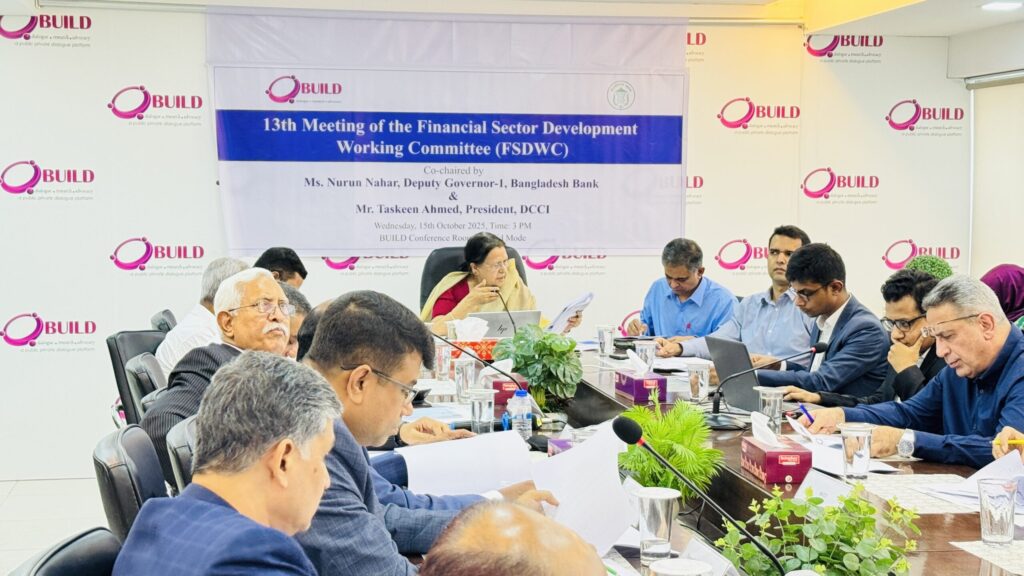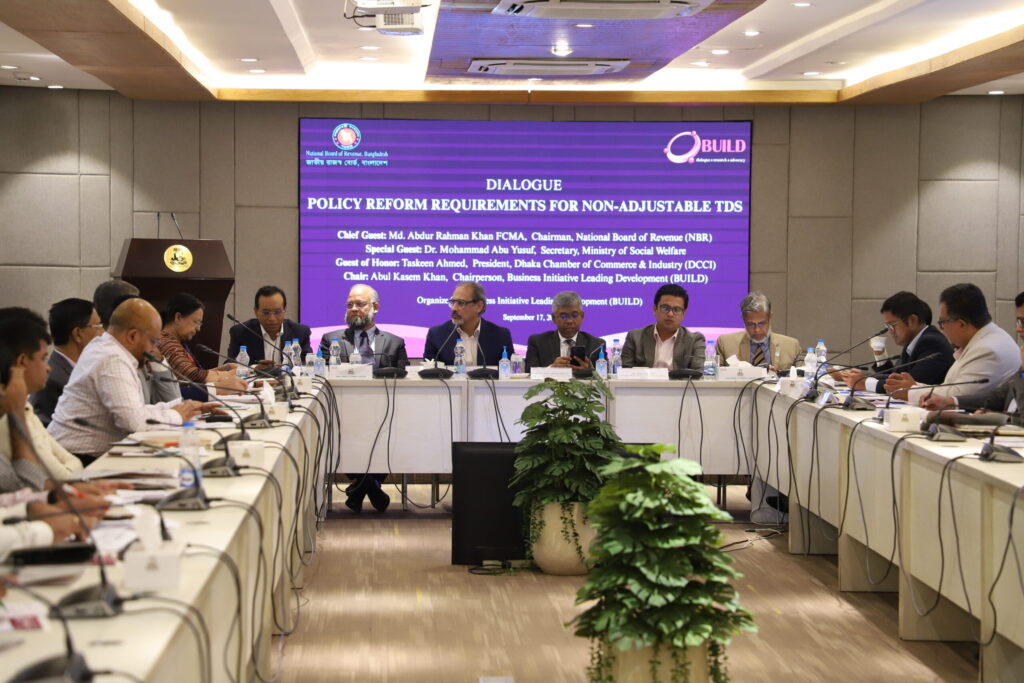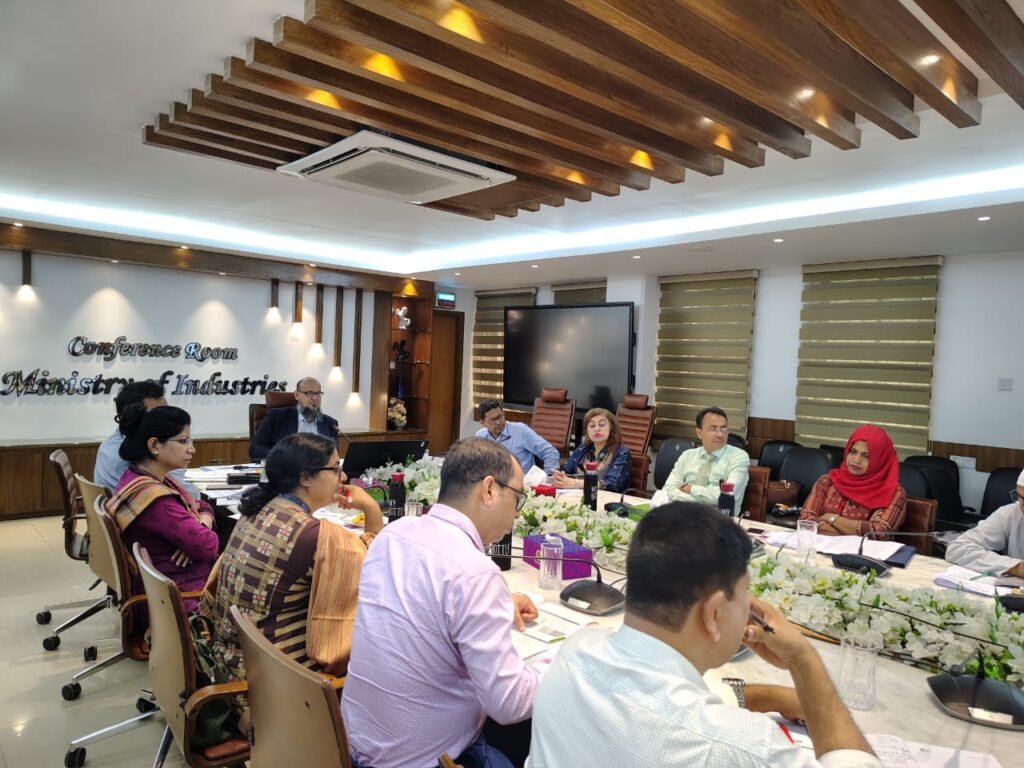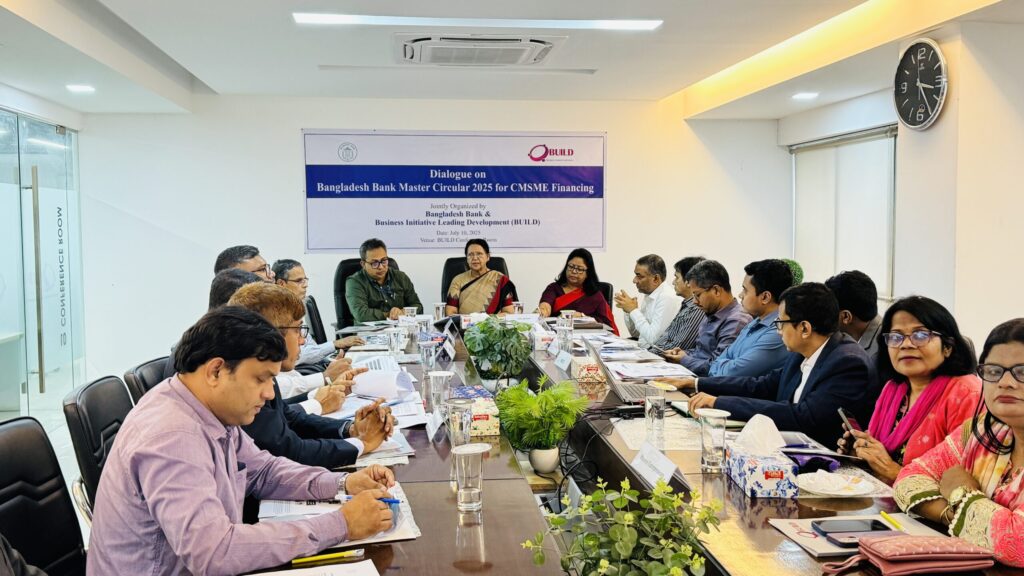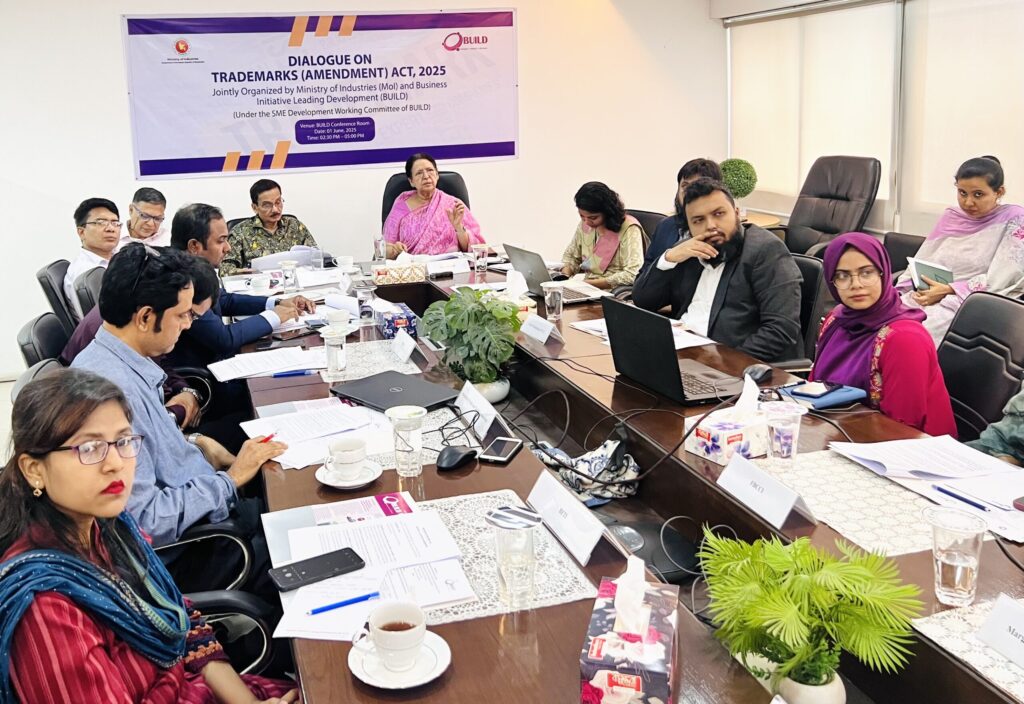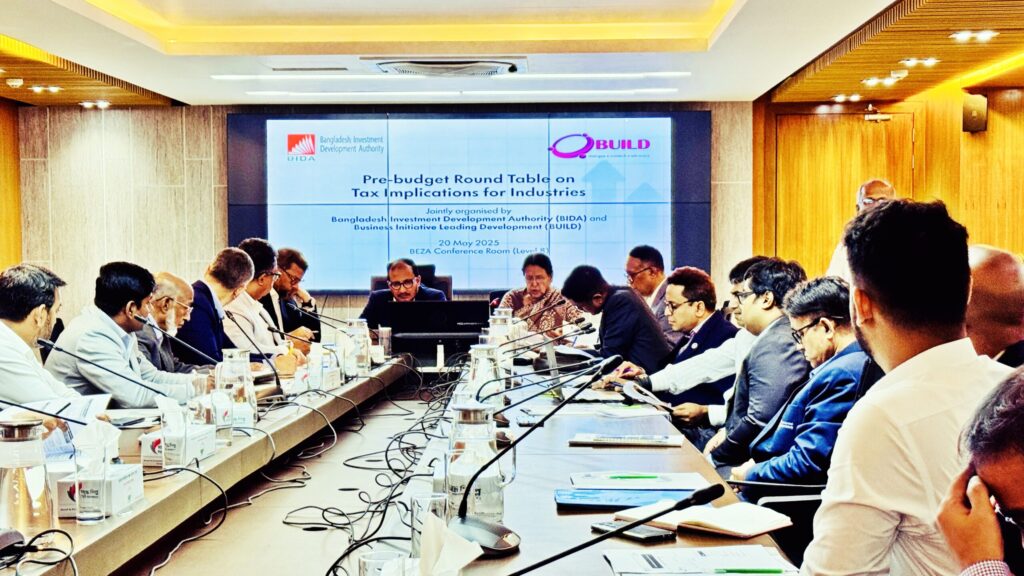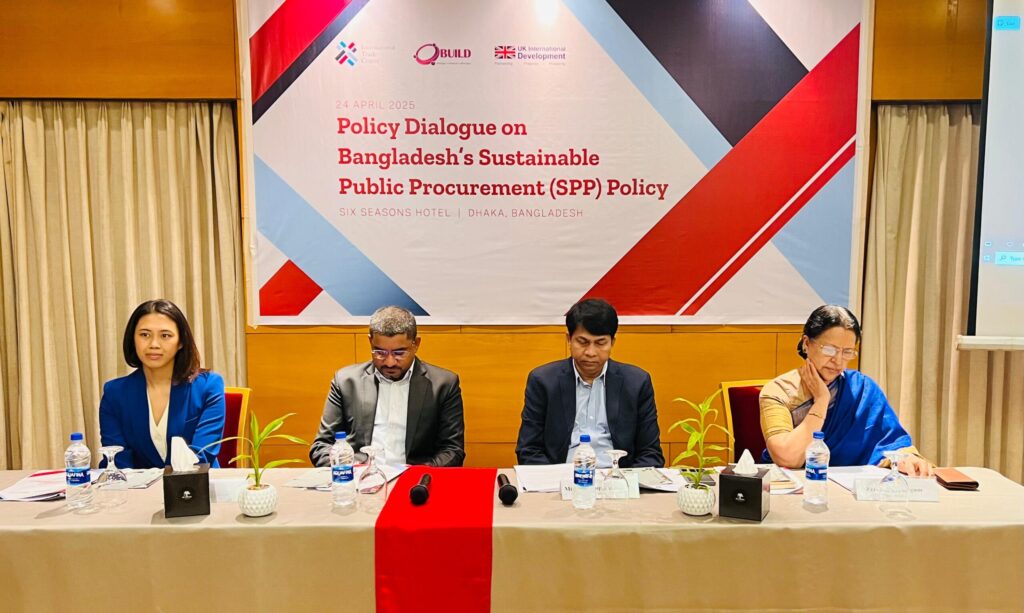13th FSDWC Meeting: Bangladesh Bank to Align Credit Guarantee Scheme With CMSME Master Circular
BUILD is pleased to share its latest press release titled “Bangladesh Bank to Align Credit Guarantee Scheme with CMSME Master Circular — Deputy Governor Announces at BUILD’s 13th FSDWC Meeting.”
The press release covers key discussions and insights from BUILD’s 13th Financial Sector Development Working Committee (FSDWC) meeting, held on 15 October 2025, chaired by Nurun Nahar, deputy governor of Bangladesh Bank. The session highlighted the upcoming alignment of the credit guarantee scheme with the CMSME master circular and shared updates on credit disbursement trends, challenges, and policy recommendations to strengthen CMSME financing in Bangladesh.
Please find the full press release in both Bangla and English attached for your consideration and potential coverage.

